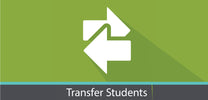1
Creating an Equitable Work Environment for Transgendered Co-workers
June is Pride Month, and at Innovative Educators we want to celebrate and honor our LBGTQ+ colleagues and students. This week NPR shares in a Life Kit episode recommendations for creating an equitable work environment for transgendered co-workers which has implications for how we work with students, too.
2
FAFSA Verification Burdens Students & Public Colleges
This week The Brookings Institution examines the FAFSA verification process. One quarter of FAFSA applicants will be asked to verify the information they provided on their financial aid application; in comparison only 2% of federal tax returns are selected for audit each year. Sixty percent of Pell-eligible students are flagged for verification. The report estimates that the cost of verifying students’ FAFSA forms costs U.S. colleges nearly $500 million annually. Community colleges bear the burden of this cost as nearly a quarter of their financial-aid operating budgets go to verification procedures compared with 1% at private institutions.
|
25%: The percentage of Pell-eligible FAFSA applicants who are flagged for verification and fail to complete the FAFSA process |
3
Test Optional Admissions: The Results a Year In
This week Higher Ed Dive examines the results of a year of test-optional college admissions. “More than two-thirds of all four-year universities in the U.S. didn't demand test scores from at least some applicants for fall 2021.” While public colleges in Florida and Georgia will continue to require SAT and ACT scores, 1,400 institutions will continue with test-optional policies into 2022. Michigan State has committed to a five year test-optional pilot and Middlebury College has entered a three year pilot. Middlebury ascribes its most diverse first year class ever in part to embracing a test-optional policy. Research supports that eliminating entrance exams diversifies student bodies, and administrators hope that the continuation of test-optional policies will increase the enrollment Black, Latinx and Indigenous students.
|
Listen to our Friday 5 Live podcast with Quincy Jenkins of Chattanooga State Community College as we discuss supporting our LGBTQ+ students, faculty and staff. |
4
Examining the 16 Week Semester: Is a Shorter Term More Equitable?
While 95% of higher education institutions in the United States adhere to a 16-week semester calendar, there is an increasing interest in flexible academic schedules. Community colleges are leading the shift in the academic calendar format by offering courses in eight-week formats. “Proponents of the eight-week semester praise its flexibility, especially for working students and student parents.” Achieving the Dream has released a guide for institutions looking to make the change to eight-week terms, which offers support to faculty redesigning courses to fit a shorter format, while also highlighting the work of five schools that have seen success in a compressed semester. Trident Technical College adjusted its calendar five years ago, and has seen an 8% increase in graduation rates and a decrease in withdrawal rates in that time.
|
Looking to learn more? These upcoming webinars may be of interest: Returning to Campus: Using A Holistic Approach To Help All Student Populations Succeed, June 16 Planning For A Safe Return To Campus: HR, Public Safety, Training & Communication, July 15 |
5
This week the Department of Education hosted five days of public hearings on how to improve Title IX enforcement. As of Monday, the department had received 700 requests for the 600 virtual speaking slots and 15,000 written comments. Speakers have addressed a range of topics from “the need for Title IX to address sexual violence prevention to the debate over transgender athletes competing on sports teams.”
June 11, 2021



Comments 0